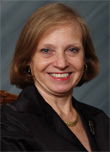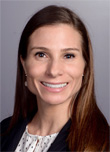When Outsourcing Fails All Of Us

By Louis Garguilo, Chief Editor, Outsourced Pharma

Sometimes, emerging biopharma – founded by accomplished scientists and professionals in their field – can’t find a CDMO to help them scale up.
As we are about to see, this can impact all of us.
This occurs even though the biopharma presents with development compounds based on extensive and third-party research results. And the disease-targets encompass a large and growing patient population.
The case I bring readers today has such notable cofounders, promising compounds, impressive addressable market, and to-date, a disregard by CDMOs.
But generalizing for a moment, why would a CDMO not be interested in a potential client? I’ve listed what I believe to be the top reasons:
- lack of funding at the biopharma
- nature of the molecules/compounds/technology involved
- lack of expertise / current capacity/resources at the CDMO
- harbored disbelief at the CDMO in the chances of programmatic success
Let’s see how these apply here.
Wet And Dry
Boiling down this complicated unfolding to its essential details:

Burzell is a marine and medical microbiologist. She received TechAmerica's Abacus Award for Researcher of the Year for discovering a new genus and several species of marine microbes with antibiofilm/antifouling properties. She won the NASA iTech Award / Life Support category for bacterial contamination solutions for water reuse/recycling systems on board the International Space Station.

Burzell discovered and has elucidated compounds derived from marine microbes; therefore, this is not only a “natural products” narrative, but a “marine-derived natural products” tale. Most readers will recognize the difficulties our industry has here.
Nonetheless, in 2019, the NIH/NIAID were so impressed with data from Aequor’s compounds, they offered “free pre-clinical trials for as many new drug candidates as we can provide,” says Bruno.
Most importantly, these compounds have proven to successfully target antimicrobial-resistant (AMR) Superbugs. Aequor’s chemicals can even enhance existing drugs, such as penicillin, to do the same – at extremely low and human-tolerable doses.
In 2016, the United Nations declared Superbugs a main threat to human survival.
When she worked on the pandemic threat portfolio at the U.S. State Department, Bruno recalls:
“One thing that struck me when I was in that room with the NSF, WHO, CDC, FDA, DoD, DHS – every agency of America addressing pandemic threats. Among all these people and departments, the DoD was in the lead. I remember asking, ‘Why is that? Why don’t the scientists at NIH or CDC have the lead?’ The answer was, ‘because DoD has the body bags.’"
In other words, “body bags” were how we’ve responded to these threats – containment only.
“There's no other plan to control pandemic spread, because there are no medications that can contain these superbugs,” Bruno says.
“It’s heartbreaking. When AMR was named a dangerous threat in 2016, already over 700,000 people were dying annually from AMR-related incurable diseases. Not only resistant strains of Staphylococcus (MRSA, VRSA) associated with hospital-acquired infections, but E.coli, salmonella, gonorrhea, tuberculosis, pneumonia, Candida fungi, etc.
"What's happened with incurable MRSA topical infections from diabetic wounds and chemo wounds is doctors are just amputating. They're talking about the increase in incurable bed sores because of the aging population. It's a hideous way to die.”
And unnecessary: Aequor’s compounds can kill AMR and the Superbugs.
If the company can find a chemical partner to scale up some of their compounds.
The Discussions
The NIH advises Aequor it needs to deliver a half kilo of each drug they’d like to progress into pre-clinical trials.
Some government funding may be available for this … if they first secure that elusive chemical partner.
Private equity investors, for their part, seem uninterested. Believe me, I’ve pressed Bruno on why this is so – it seems enterprises much less worthy are funded left and right these days.
This is a frustration, and she has few good answers.
Currently, she’s in discussions with three potential chemical scale-up partners. One remains “lukewarm and throwing up additional roadblocks before taking this on.”
Discussions seem further along with another, more traditional CDMO, although their expertise would not lend them as an ideal partner.
These and other CDMOs have a practical concern:
“You are not going to put anything grown with salt in our equipment,” they respond when learning they are discussing developing chemicals from marine microbes.
But talks are back on with a European service provider.
“They would be a superb partner,” Bruno says. They operate a facility in the U.S. (stipulated by the NIH) that would have to be suitable for the scale up.
Separately, at one point in 2015, Aequor had a “first-right of negotiation deal” signed with Cubist Pharmaceuticals, who were, Bruno adds, “wildly enthusiastic.”
But Merck acquired Cubist and did not share that interest – or any at all.
In fact, Bruno has plenty to say about all Big Pharma in regards to how they have abandoned the crucial search for AMR solutions in the anti-infective space, which faces a long regulatory pathway to market, lower reimbursements, and low ROI compared with "blockbuster" drugs.
In some areas, she says, Big Pharma has kneecapped Aequor (and others) in their efforts to move forward. On the other hand, these behemoths wait in ready to swoop in on any development program that might finally cross the pre-commercial line.
More of this discussion belongs in a different publication, but needs to be mentioned here.
For Now
Aequor was located in Johnson & Johnson’s JLABS-San Diego, but in 2020 the incubator closed frequently due to COVID, interrupting Burzell's research and development. Aequor now shares a small lab in the area with another biopharma.
In addition to working on industrial biotech contracts (with DOE, NASA, EPA, DoD), and pilot projects with some multinationals, Bruno and Burzell have taken on consulting roles to other companies – they have the skillset and ability to perform antimicrobial testing of compounds against AMR inhibiting ability.
“We've pivoted to use our research expertise for other people,” says Bruno, including companies developing medical devices. It’s a good revenue stream to keep Aequor going.”
Most specifically, they conduct “biofilm” testing. Biofilms are a whole story until themselves – an integral part of Aequor sorely underestimated, but again, left to a different time and audience.
Still, the goal – life mission, really – remains getting their marine-based chemical compounds scaled up and into the clinic, where Bruno and Burzell are convinced they’ll prove effective. And the world will finally be able to fight back the menacing Superbugs among us.
But when CDMOs can’t – or won’t – come to the rescue, it can hurt us all.
